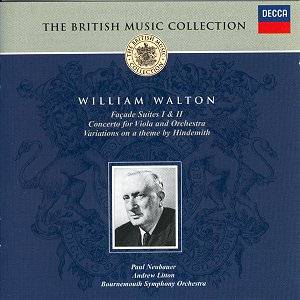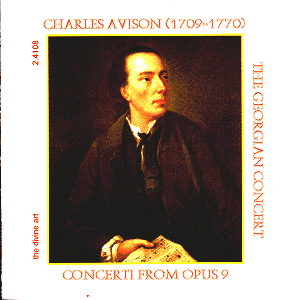 Composer: Sir William Walton
Composer: Sir William Walton
Works: Façade, Suites Nos I & II; Viola Concerto; Variations on a Theme by Hindemith
Performers: Paul Neubauer (viola), Bournemouth Symphony Orchestra, Andrew Litton (conductor)
Recording: March 1996, Guildhall, Southampton
Label: DECCA
Sir William Walton’s contributions to the 20th-century musical landscape are both profound and multifaceted, often reflecting a vibrant interplay between tradition and innovation. This recording, part of Decca’s British Music Collection, showcases a selection of Walton’s works that illuminate his diverse compositional voice. With the instrumental suites extracted from the theatrical work Façade, alongside the introspective Viola Concerto and the spirited Variations on a Theme by Hindemith, this disc encapsulates Walton’s stylistic evolution as he approached his sixtieth birthday in 1963.
In the Viola Concerto, Paul Neubauer emerges as a commanding soloist, navigating the work’s intricate passages with remarkable agility. The performance exhibits a palpable sense of ebb and flow, a quality that is essential to Walton’s often turbulent emotional landscape. Neubauer’s phrasing in the slower sections is particularly noteworthy; he imbues the music with a rich tonal warmth that rivals the celebrated interpretations of his contemporaries, such as Nigel Kennedy. The Bournemouth Symphony Orchestra, under Andrew Litton’s baton, provides a robust backdrop, though one senses that a deeper familiarity with the work might have allowed for a more liberated and dynamic interpretation. The orchestral writing is deftly crafted, and the balance achieved in the recording is commendable; the soloist remains distinct without being overly spotlighted, a common pitfall in studio recordings of string concertos.
The Variations on a Theme by Hindemith stands as one of Walton’s late-career triumphs. The orchestral textures are both rich and transparent, allowing each variation to reveal its own character while maintaining an overarching cohesiveness. Walton’s keen orchestration is on full display, with inventive instrumental combinations that speak to Hindemith’s influence. While the performance is certainly polished, there is a sense that the Bournemouth Symphony Orchestra could have embraced a more uninhibited approach, particularly in the more exuberant variations. The recorded sound captures the vibrancy of the orchestral colors well, benefitting from the Guildhall’s acoustics, yet the interpretative choices could have ventured into bolder territory.
The suites derived from Façade, while charming, pose a question of necessity in their arrangement. Andrew Litton’s decision to re-order the movements suggests a desire to create a coherent narrative flow, but one cannot help but feel that the absence of the original vocal elements strips the music of its inherent wit and theatricality. The Bournemouth players handle the various solo opportunities with aplomb, yet without the engaging dialogue of the narrators, the music at times feels like a delightful yet somewhat hollow experience—akin to enjoying a sandwich without its filling. The stark contrast between the suites and the more substantial works on this disc amplifies this sentiment; Walton’s characteristic wit and charm are muted in this purely instrumental context.
While this recording presents an impressive selection of Walton’s work, it ultimately raises questions about the interpretative depth and the presentation of the music. The performances are commendable, showcasing skilled musicianship and a well-engineered sound. However, the lack of a fully immersive experience in the suites, coupled with the occasional restraint in orchestral execution, leaves one yearning for a more vibrant exploration of Walton’s rich legacy. This album serves as a testament to Walton’s enduring significance but could benefit from a more daring and nuanced interpretation of his music.



